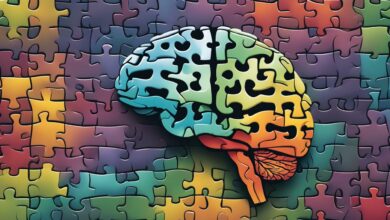Empowering Women’s Health: A Comprehensive Approach

Welcome to our guide on empowering women’s health through a comprehensive approach. We recognize that women face unique health challenges throughout their lives, and our goal is to equip you with the knowledge and tools to prioritize your health and well-being. In this article, we will explore various aspects of women’s health at different life stages, including essential screenings, maternal health, mental health, hormonal health, healthy aging, sexual and reproductive health, and nutrition and fitness. By taking a proactive approach to your health, you can take control of your well-being and live your best life.
Key Takeaways:
- A comprehensive approach to women’s health is essential in addressing the unique health challenges women face at different life stages.
- Prioritizing essential screenings can help detect and prevent potential health issues.
- Maintaining maternal health during pregnancy is crucial to ensure a healthy pregnancy journey.
- Addressing mental health challenges and promoting emotional well-being contributes to overall wellness.
- Managing hormonal health and maintaining reproductive wellness impacts women’s overall well-being.
Understanding Women’s Health at Different Life Stages
Women’s bodies are constantly changing, and with these changes come unique health considerations at different life stages. It is important for women to understand these stages and the potential health risks associated with them.
Adolescence
During adolescence, girls experience significant hormonal changes as they approach puberty. This can lead to menstrual irregularities, acne, and even emotional changes. It is important for young women to practice good hygiene and establish healthy habits early on to maintain optimal health throughout their lives.
Reproductive Years
Women in their reproductive years may face a variety of health concerns, including sexually transmitted infections (STIs), pregnancy-related issues, and menstrual irregularities. It is important for women to maintain regular check-ups with their healthcare providers and to practice safe sex to prevent these health risks.
Perimenopause
Perimenopause typically begins in a woman’s mid-40s and can last for several years before menopause. During this time, women may experience irregular periods, hot flashes, and other symptoms related to hormonal changes. It is important for women to manage these symptoms through lifestyle changes and, if needed, hormone therapy.
Menopause
Menopause marks the end of a woman’s reproductive years and typically occurs around age 50. During this time, women experience a variety of symptoms, including hot flashes, vaginal dryness, and mood changes. It is important for women to manage these symptoms through healthy lifestyle choices and, if needed, hormone therapy.
Postmenopause
After menopause, women may still face health risks related to aging, such as osteoporosis and heart disease. It is important for women to maintain regular health check-ups and to stay active physically and mentally to maintain optimal health in their older years.
Essential Screenings for Women’s Health
Regular health screenings are crucial for maintaining optimal wellness. As women, we are prone to certain health conditions unique to our sex. Early detection and prevention are key in managing these conditions, and this is where screenings play an essential role. Here, we will highlight some of the essential screenings that women should undergo regularly:
| Screening Type | Frequency | Purpose |
|---|---|---|
| Mammogram | Yearly for women over 45 | To detect breast cancer in its early stages before symptoms appear |
| Pap Smear | Starting at age 21 and as recommended by your healthcare provider | To detect cervical cancer and precancerous cell changes in the cervix |
| Bone Density Test | Starting at age 65, or earlier as recommended by your healthcare provider | To measure bone density and detect osteoporosis |
| Cholesterol Check | At least once every five years or as recommended by your healthcare provider | To monitor cholesterol levels and assess risk of heart disease |
It is important to note that the frequency and timing of these screenings may vary based on individual health history and risk factors. It is best to consult with a healthcare provider to determine the appropriate screening schedule.
Additionally, there are many other screenings that may be relevant for certain individuals, such as colonoscopies, skin cancer screenings, and sexually transmitted infection (STI) testing. Your healthcare provider can assess your specific needs and recommend additional screenings as necessary.
Remember, taking care of our health is a lifelong journey. By making proactive choices like undergoing regular screenings, we can prioritize our well-being and catch potential health issues early, when they are most easily treatable. Let’s empower ourselves with knowledge and take charge of our health!
Maternal Health and Pregnancy Care
Pregnancy is a beautiful and transformative time in a woman’s life. It is also a time when proper maternal health care is essential for both the mother and the growing fetus. In this section, we will discuss the importance of prenatal care, proper nutrition, exercise, and common concerns during each trimester. We will provide guidance and resources to support a healthy pregnancy journey.
Maternal Health Care
One of the first steps in ensuring a healthy pregnancy is seeking proper maternal health care. Regular prenatal visits with a healthcare provider can help detect any potential health issues and ensure that the pregnancy is progressing as it should. During these visits, the healthcare provider will check the mother’s blood pressure, weight, and listen to the baby’s heartbeat. They may also perform routine blood and urine tests to check for any potential complications.
Nutrition During Pregnancy
A balanced and nutritious diet during pregnancy is vital. Pregnant women require additional nutrients such as folic acid, iron, and calcium, and should also aim to consume plenty of fruits, vegetables, and lean proteins. Omega-3 fatty acids, found in foods such as fish, can also support fetal brain development. It is important to avoid certain foods during pregnancy, including raw or undercooked meats, fish with high levels of mercury, and unpasteurized dairy products.
Exercise
Regular exercise during pregnancy can help reduce stress, improve sleep, and maintain a healthy weight. It may also help prepare the body for childbirth. However, it is essential to discuss an exercise program with a healthcare provider to ensure it is safe and appropriate for the individual’s unique pregnancy and health situation.
Common Concerns During Each Trimester
Each trimester of pregnancy comes with its unique set of concerns and challenges. During the first trimester, morning sickness and fatigue are common. In the second trimester, the baby’s movements become more noticeable, and the mother’s body will continue to change. In the third trimester, the baby’s growth accelerates, and the mother may experience discomfort and difficulty sleeping. It is essential to discuss any concerns or symptoms with a healthcare provider to ensure proper care and support.
Mental Health and Emotional Well-being
At every stage of a woman’s life, mental health and emotional well-being play a vital role in overall wellness. We recognize the importance of addressing mental health challenges faced by women, including stress, anxiety, depression, and body image concerns. Understanding these challenges is the first step in promoting positive mental health and seeking support when necessary.
Stress
Stress can have a significant impact on a woman’s mental and physical health. It’s essential to identify the sources of stress and develop healthy coping mechanisms. Exercise, mindfulness, and seeking support from loved ones can help alleviate stress.
Anxiety and depression
Anxiety and depression affect women at higher rates than men. Women may experience symptoms such as excessive worry, panic attacks, low mood, and loss of interest in activities. Seeking professional help from a healthcare provider or therapist can help manage these symptoms.
Body image concerns
Body image concerns affect women of all ages. Negative body image can lead to low self-esteem, poor mental health, and disordered eating patterns. Practicing self-care, surrounding yourself with positive influences, and seeking support can help improve body image and promote self-confidence.
Our commitment to women’s mental health
At [Company Name], we recognize the importance of prioritizing women’s mental health. We strive to provide resources and education to empower women to take control of their mental health and seek support when necessary. Together, we can promote positive mental health and emotional well-being for women everywhere.
Hormonal Health and Menstrual Cycle
As women, our hormonal health and menstrual cycle play a significant role in our overall well-being. Hormones are powerful chemical messengers that regulate numerous bodily functions, including reproduction, metabolism, and mood. Fluctuations in hormones can cause a range of symptoms and health concerns, ranging from mild to severe.
The menstrual cycle is a complex physiological process that prepares the body for reproduction each month. The cycle involves the release of hormones such as estrogen and progesterone, which regulate changes in the uterus and ovaries. A menstrual cycle typically lasts between 21 to 35 days, with bleeding lasting three to seven days.
However, hormonal imbalances or disruptions can cause irregularities in the menstrual cycle, such as missed periods or heavy bleeding. Some women may also experience premenstrual syndrome (PMS), which is a group of symptoms that occur before menstruation, such as mood swings, headaches, and bloating.
Polycystic Ovary Syndrome (PCOS)
Polycystic ovary syndrome (PCOS) is a hormonal disorder that affects up to 10% of women of reproductive age. PCOS is characterized by high levels of androgens (male hormones) and insulin resistance, leading to irregular menstrual cycles, acne, and excess hair growth.
PCOS can also cause fertility issues and an increased risk of type 2 diabetes, heart disease, and certain cancers. Diagnosis and treatment of PCOS typically involve lifestyle changes, such as weight loss and exercise, and medications to regulate hormones and insulin levels.
Managing Hormonal Health and Reproductive Wellness
Maintaining hormonal health and reproductive wellness involves proactive care and attention to any changes or abnormalities in the menstrual cycle or hormonal symptoms. Regular gynecological exams and screenings can help detect and prevent potential health issues.
Other helpful tips for managing hormonal health and reproductive wellness include practicing stress management techniques, getting regular exercise, and maintaining a healthy weight. Nutritious foods and supplements can also benefit hormonal health, such as omega-3 fatty acids, vitamin D, and probiotics.
By taking a proactive approach to hormonal health and reproductive wellness, women can take control of their health and promote lifelong well-being.
Healthy Aging for Women
As women age, they may face unique health challenges that can impact their overall well-being. However, by taking a proactive approach to their health, women can maintain their quality of life and live to the fullest. In this section, we will explore key strategies for healthy aging and women’s health in aging.
Maintaining Bone Health
As women age, their bone density decreases, increasing their risk of osteoporosis and fractures. To maintain bone health, women should incorporate calcium and vitamin D-rich foods into their diet and participate in weight-bearing exercises such as walking or strength training. Women should also talk to their healthcare provider about bone density screenings and potential treatment options.
Managing Menopause Symptoms
Menopause is a natural part of the aging process for women, but it can present uncomfortable symptoms such as hot flashes, vaginal dryness, and mood changes. Women can manage these symptoms with lifestyle changes such as staying cool, dressing in layers, and avoiding triggers such as caffeine and alcohol. Hormone replacement therapy (HRT) may also be an option for some women, and healthcare providers can discuss the pros and cons of HRT with their patients.
Preventive Care
Preventive care is essential for maintaining women’s health as they age. This includes regular check-ups with a healthcare provider, recommended screenings such as mammograms and colonoscopies, and vaccinations such as the flu and pneumonia vaccines. By staying up-to-date with their preventive care, women can detect and treat potential health issues early, leading to better health outcomes and quality of life.
Healthy Lifestyle Choices
Maintaining healthy lifestyle choices can have a significant impact on women’s health in aging. This includes maintaining a balanced diet, staying active, managing stress, and avoiding harmful habits such as smoking and excessive alcohol consumption. By making these choices, women can reduce their risk of chronic diseases and maintain their overall well-being.
Conclusion
By taking a comprehensive approach to their health and wellness, women can maintain their quality of life as they age. By engaging in preventive care, making healthy lifestyle choices, and staying proactive about their bone and hormonal health, women can age gracefully and continue to live their best lives.
Sexual and Reproductive Health
As women, it is essential to prioritize our sexual and reproductive health. By being proactive and informed, we can make empowered decisions about our bodies and overall well-being. Here, we will cover some important topics related to sexual and reproductive health.
Contraception Options
Contraception is an important consideration for women who are sexually active but not ready to have a child. There are many contraception options available, including hormonal options such as birth control pills, patches, and injections, as well as non-hormonal options like condoms, diaphragms, and intrauterine devices (IUDs). Each method has its own benefits and risks, so it is essential to discuss with your healthcare provider to determine which option is best for you.
Sexually Transmitted Infections (STIs)
Sexually transmitted infections (STIs) are infections that are spread through sexual contact with someone who has the infection. Common STIs include chlamydia, gonorrhea, genital herpes, human papillomavirus (HPV), and HIV/AIDS. It is important to get tested for STIs regularly, especially if you are sexually active with multiple partners. Practicing safe sex, such as using condoms, can help prevent the spread of STIs.
Fertility Awareness
Fertility awareness is a method of birth control that involves tracking your menstrual cycle to determine when you are most fertile. This method can be effective when used correctly but requires dedication and consistency. It is essential to learn and understand your body’s natural cycles to use this method effectively.
Sexual Satisfaction and Intimacy
Sexual satisfaction and intimacy are important components of overall sexual and reproductive health. Communication with your partner, practicing safe and consensual sex, and prioritizing self-care are all essential for healthy sexual relationships. It is also important to seek medical help if you experience pain or discomfort during sexual activity.
Reproductive Health Choices
Reproductive health choices, such as when to start a family or what type of birth control to use, are personal decisions that can impact your overall health and well-being. It is essential to have access to comprehensive reproductive health services and information to make informed decisions about your reproductive health.
Nutrition and Fitness for Women
Proper nutrition and regular physical activity are essential components of women’s health and well-being. Making healthy lifestyle choices can help prevent chronic diseases, maintain a healthy weight, and improve overall quality of life.
Nutrition for Women
A balanced and nutritious diet is important throughout a woman’s life. Women have unique nutritional needs, such as increased iron requirements due to menstruation and higher calcium needs for bone health.
We recommend a balanced diet that includes:
- Whole grains
- Fruits and vegetables
- Lean proteins, such as chicken, fish, and legumes
- Low-fat dairy products
Limiting processed foods, sugary drinks, and saturated fats can help maintain a healthy weight and reduce the risk of chronic diseases such as heart disease, diabetes, and cancer.
Women’s Fitness
Regular physical activity can help women maintain a healthy weight, improve heart health, and reduce the risk of chronic diseases. The Centers for Disease Control and Prevention (CDC) recommends at least 150 minutes of moderate-intensity aerobic activity per week, such as brisk walking, cycling, or swimming.
Strength training is also important for maintaining muscle mass, bone health, and overall strength. Women should aim for at least two days of strength training per week, targeting major muscle groups such as the legs, arms, back, and core.
Healthy Lifestyle Choices
In addition to eating a balanced diet and engaging in regular physical activity, there are other healthy lifestyle choices that women can make to improve their overall well-being. These include:
- Getting enough sleep
- Reducing stress through relaxation techniques such as meditation or yoga
- Avoiding smoking and limiting alcohol consumption
- Getting regular check-ups and screenings for prevention and early detection of health issues
By making healthy lifestyle choices, women can take control of their health and well-being and enjoy a full and active life.
Conclusion
In conclusion, we have explored a comprehensive approach to women’s health, covering various aspects of women’s health at different life stages. From adolescence to postmenopause, we discussed the unique health considerations and screening options for women. It is crucial to prioritize preventive care and proactive health management to maintain optimal well-being.
Maintaining a healthy lifestyle that incorporates proper nutrition, physical activity, and self-care is essential for a woman’s overall health. It is equally important to address mental health concerns and seek support when needed.
Women’s sexual and reproductive health should also be prioritized, and informed decisions should be made regarding contraception, STI prevention, fertility, and reproductive choices.
By taking a comprehensive approach to women’s health, we can empower women with the knowledge and tools necessary for lifelong wellness. We encourage women to prioritize their health and seek guidance from healthcare providers when needed. Together, we can strive for optimal well-being and live life to the fullest.
FAQ
Q: What is the comprehensive approach to women’s health?
A: The comprehensive approach to women’s health focuses on addressing the various aspects of women’s health at different life stages. It involves considering physical, mental, and emotional well-being, as well as providing essential screenings and proactive care. This approach aims to empower women with the knowledge and tools for lifelong wellness.
Q: What are the unique health considerations for women at different life stages?
A: Women’s health needs change as they go through different life stages. Adolescence, reproductive years, perimenopause, menopause, and postmenopause all come with specific health considerations. Understanding these stages helps women navigate their health journey with confidence.
Q: What are some essential screenings for women’s health?
A: Regular screenings are crucial for maintaining women’s health. Important screenings include mammograms, Pap smears, bone density tests, and cholesterol checks. These screenings can detect potential health issues early and help in their prevention.
Q: Why is maternal health care important during pregnancy?
A: Proper maternal health care is essential for a healthy pregnancy journey. Prenatal care, nutrition, exercise, and addressing common concerns during each trimester are crucial components of maternal health care. Taking care of maternal health ensures the well-being of both the mother and the baby.
Q: How can women maintain good mental health and emotional well-being?
A: Women’s mental health and emotional well-being are vital aspects of overall wellness. Strategies for self-care, seeking support, and promoting positive mental health can help address common challenges such as stress, anxiety, depression, and body image concerns.
Q: How can women manage hormonal health and the menstrual cycle?
A: The menstrual cycle and hormonal health significantly impact women’s overall well-being. Managing menstrual irregularities, premenstrual syndrome (PMS), hormonal imbalances, and conditions like polycystic ovary syndrome (PCOS) is essential. Maintaining hormonal health supports reproductive wellness.
Q: What are some key considerations for healthy aging in women?
A: Aging is a natural process, and women may face unique health challenges as they grow older. Preventive care, healthy lifestyle choices, maintaining bone health, managing menopause symptoms, and other factors contribute to healthy aging for women.
Q: How can women ensure sexual and reproductive health?
A: Sexual and reproductive health is integral to women’s overall well-being. Understanding contraception options, managing sexually transmitted infections (STIs), fertility awareness, sexual satisfaction and intimacy, and making informed reproductive health choices are crucial for women.
Q: What role does nutrition and fitness play in women’s health?
A: Nutrition and fitness are vital for women’s health. Maintaining a balanced diet, consuming essential nutrients, managing a healthy weight, engaging in physical activity, and reaping the benefits of exercise contribute to overall well-being.




